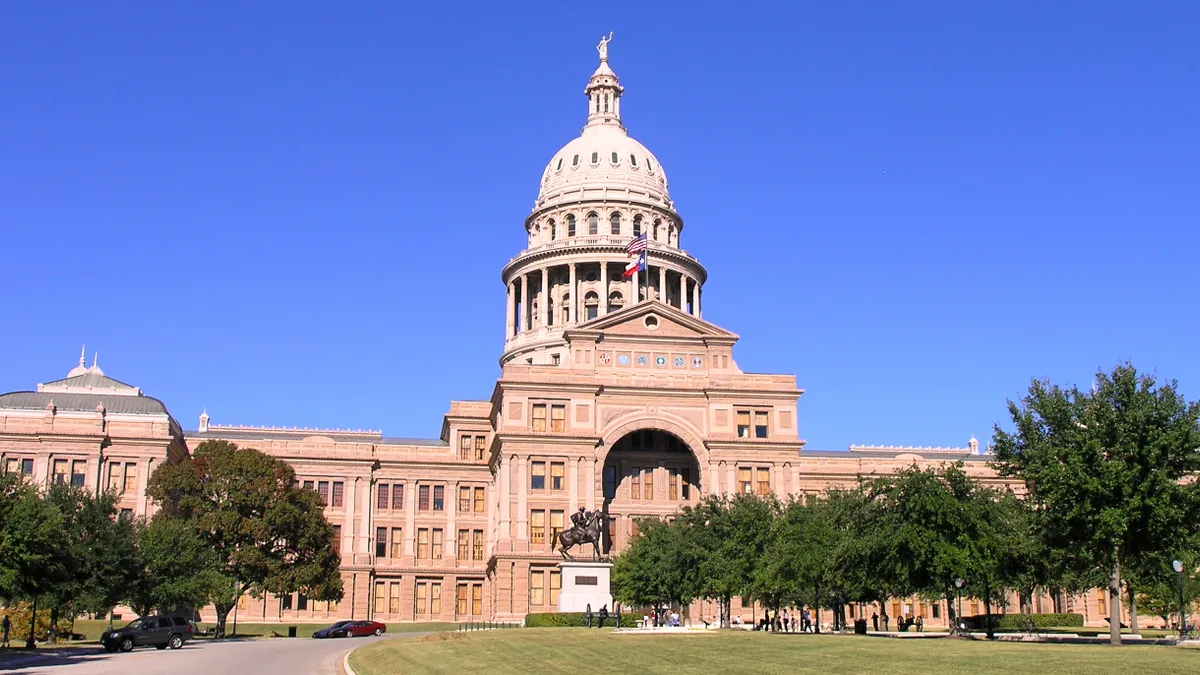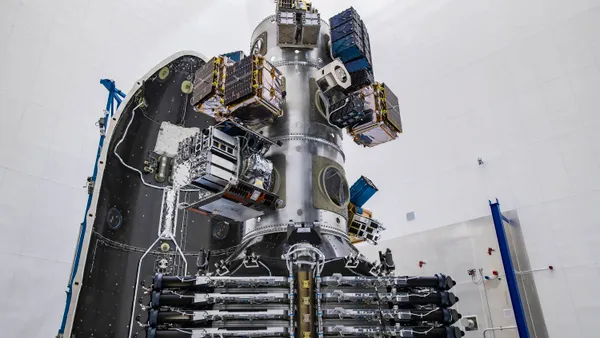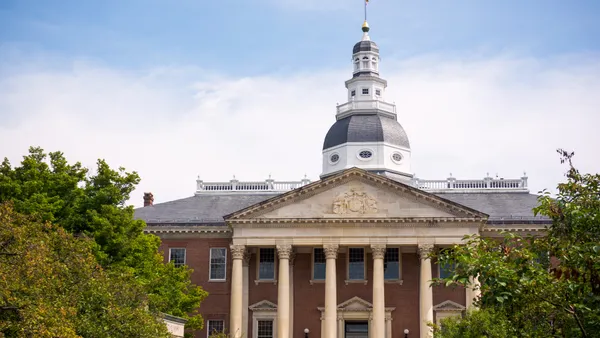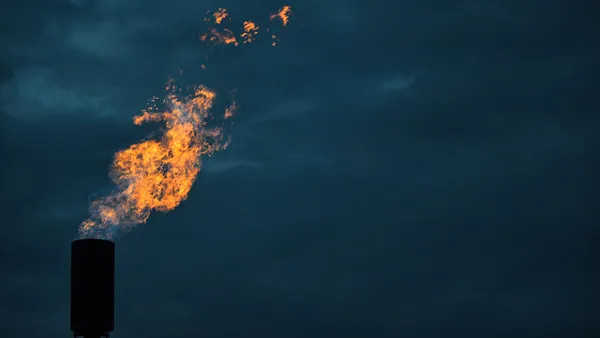Dive Brief:
- Two bills (HB 1331 and HB 1435) related to solid waste permitting were passed by the Texas state legislature this session. Each bill has been signed into law by Gov. Greg Abbott and will take effect September 1.
- HB 1331 raises the application fee for a municipal solid waste permit from $150 to $2,000. SB 1976, which would have increased the application fee to $5,000 plus the cost for public notice, didn’t receive a second hearing this session.
- HB 1435 will require the Texas Commission on Environmental Quality to visit any facilities that will be used to "store, process, or dispose of municipal solid waste" and verify application information before required permits are "issued, amended, extended, or renewed."
Dive Insight:
Texas is known for being less restrictive than some states when it comes to solid waste permitting — especially for landfills — so the passage of these seemingly minor laws is notable. Legislative records indicate both bills drew support from Waste Management, Republic Services and the Texas Campaign for the Environment (TCE). SWANA's Lone Star Chapter also supported HB 1435. The NWRA confirmed to Waste Dive it did not take a position on either bill.
TCE backed more than a dozen bills aimed at reforming the state's waste system, but these were the only two that passed this year. Other notable bills that didn't make it to the governor’s desk include HB 4568, which would have required businesses to use floodplain information from local authorities when making decisions about where to site landfills, and SB 987, which would have restricted the construction of landfills on certain aquifers.
"There's a lot of bipartisan support for doing something, but unfortunately, most of those bills didn't even get a hearing," Andrew Dobbs, a TCE program director, told Waste Dive. "I think it’s because there's a lot going on there, and some of these committees were slow-playing a lot of things. So that was kind of disappointing."
Still, Dobbs said TCE is pleased HB 1331 will raise the permit application fee and hopes to see it increased again to cover the "hours and hours of agency time" often required to process submissions, which can be thousands of pages long. He also believes HB 1435 will help avert more potential issues at waste sites. "We've had instances in the past of applicants being misleading or lying on applications and dangerous proposals coming close to getting approved," said Dobbs.
Looking ahead, Dobbs said the bipartisan attention these issues generated during the session is likely to lead to a reopening of permitting and enforcement of solid waste rules. More resistance could be expected if higher stakes proposals are introduced, but it's also possible the industry may find common cause in bringing more regularity to the process.
"A large number of waste permits become knock-down, drag-out fights, and we believe that's because the system is so lax that there's a race to the bottom to get the cheapest, easiest landfill applications out there," said Dobbs. "If we can tighten these things up, we can make sure bad proposals are never made in the first place. And whenever applications are put forward, everybody can be confident they're going to move forward in a timely and predictable manner."














